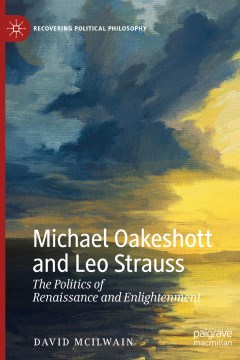Leo Strauss and Alexandre Kojève on tyranny and theory
pp. 117-134
Abstrakt
The debate between Leo Strauss and Alexandre Kojève in On Tyranny is most often approached in terms of the quarrel of the Ancients and the Moderns—Strauss having sought a philosophical opponent capable of making a consistent and intransigent case for modern thought against which his revival of Socratic political philosophy might appear in the greatest clarity. However, McIlwain argues that the debate can also be understood in terms of Strauss and Kojève's shared interest in Heidegger's interpretation of the "Call of Conscience" and its connection with the state of nature as the starting point for the moral and political thought of Hobbes and Hegel. This approach better reveals the stark differences between Strauss and Kojève on the relationship of the philosopher to political history.
Publication details
Published in:
McIlwain David (2019) Michael Oakeshott and Leo Strauss: the politics of renaissance and enlightenment. Basingstoke, Palgrave Macmillan.
Seiten: 117-134
DOI: 10.1007/978-3-030-13381-8_6
Referenz:
McIlwain David (2019) Leo Strauss and Alexandre Kojève on tyranny and theory, In: Michael Oakeshott and Leo Strauss, Basingstoke, Palgrave Macmillan, 117–134.




